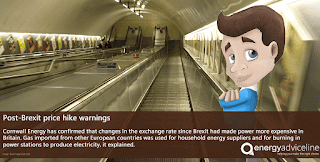News has come out this week that some of the Big Six energy suppliers are barring their existing customers from being able to find the cheapest tariffs that they have on offer.
Having been uncovered by Radio 4's 'Moneybox' programme - researchers have found that E.ON, EDF, SSE, and British Gas have ensured that their existing customers are unable to make the most of the cheapest prices they offer to new customers.
These tariffs for existing customers can end up costing hundreds of pounds a year more than if they were to switch onto a more competitive tariffs designed to attract new customers.
Previously, this type of practice was ruled as unfair and banned by the industry regulator Ofgem in April 2014. Earlier this year Ofgem announced that they would no longer be reinforcing this rule after a recommendation from the Competition and Markets Authority (CMA).
Comparison agencies have compared the prices by either renewing as an existing member of the supplier, or registering as a new one, and with E.ON this price difference came in at £260. But E.ON is not the only one to employ this tactic.
Research by the BBC has found the following results from British Gas:
- 'Home Energy Exclusive June 17' tariff as a new customer - £735
- 'Home Energy Exclusive June 17' tariff as an existing British Gas customer - £972
However, currently the consensus is that the other Big Six suppliers will not follow in the direction of their competitors. Scottish Power released a statement to say that they will not be offering these sorts of tariffs, stating that their customers can switch freely between the different tariffs on offer.
The best way to ensure that the price you are paying is competitive is to take on the advice of an unbiased and neutral help line, such as the Energy Advice Line. The leading price comparison and switching service provides free advice, and if you wish to change your supplier they will do all the hardwork for you from initial sign up through to completion.
To find out more visit energyadviceline.org.uk





